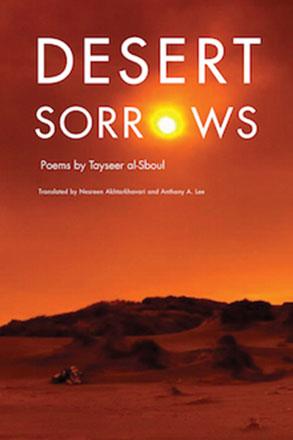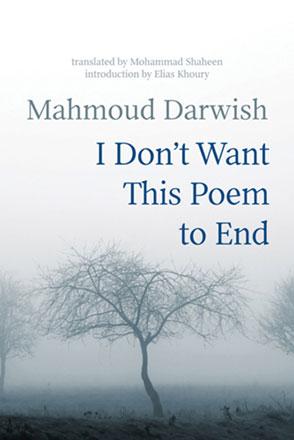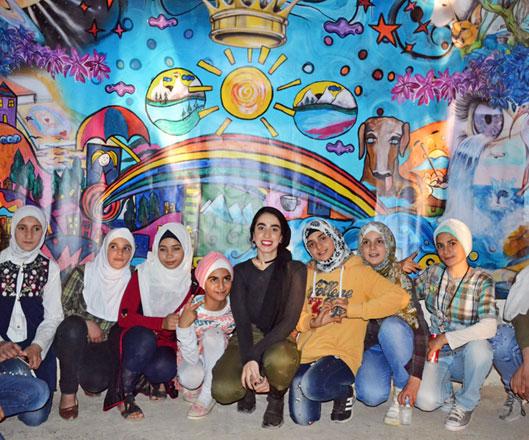You are here
A Jordanian poet with universal resonance
By Sally Bland - Jun 19,2016 - Last updated at Jun 19,2016

Desert Sorrows
Tayseer al-Sboul
Translated by Nesreen Akhtarkhavari and Anthony A. Lee
East Lansing: Michigan State University Press, 2015
Pp. 139
Tayseer al-Sboul (1939-73) needs no introduction in his homeland, Jordan, but in recent years, there have been efforts to make his works accessible to the English-language readership. In coordination with his family and the Jordanian Writers Union, Nesreen Akhtarkhavari, the director of Arabic Studies at DePaul University, has translated his novel, “You As of Today”, as well as the poems in “Desert Sorrows”, a bilingual book, where the Arabic originals appear across from their English version. This is the first English translation of all of Sboul’s poems, which were written in the years 1960-73, right up to the time of his tragic suicide at the age of only 34.
In the prologue, Otaba al-Sboul gives biographical information about his father, and explains the motivation for having his works translated: “By sharing Tayseer’s works with Western readers, we hope that a new channel of communication is established, and that his voice stands as a witness to our commonality as a human race.” (p. x)
Translating poetry is a notoriously difficult task. To render the poems in a form both true to the original and of high literary quality, Akhtarkhavari teamed up with Anthony A. Lee, a poet in his own right. Lee modified her literal translations to make them more poetic. Then they went back and forth until satisfied that the spirit and meaning of Sboul’s poems had been honoured. The positive results of their teamwork is apparent in the smoothly flowing expressiveness of the 36 poems in “Desert Sorrows”, to which each wrote an introduction.
Lee’s piece is very touching as well as enlightening. He writes frankly that he was not impressed with the first of Sboul’s poems he read. Then, in the next, he was struck by this line: “My life is winter.” “Suddenly, the poem caught me in its grip. Immediately I recognised Tayseer’s description of my own lifelong struggle with depression… He had sought to tackle the same terrible contradictions in the world that I had. He had struggled with evil and injustice, as I had. And he had found no resolution, as I had found none.” (p. xii)
Akhtarkhavari’s introduction gives an overview of Sboul’s life, focusing on what makes his writing outstanding and the political context in which he lived and wrote. Sboul was deeply affected by the 1948 Palestinian Nkbeh, the 1967 Arab defeat, and the beginning of Israeli-Egyptian peace talks after the 1973 war, which he considered the final defeat, and is probably what pushed him over the edge. Besides crediting him with innovation, Akhtarkhavari notes that his “imagery is derived mainly from his local environment and the symbolism is inspired mainly by Arab culture, literature and tradition. This is a departure from the excessive use of ancient mythology that has been employed by many other contemporary Arab writers”. (p. xxiii)
Having been challenged by the translation team to look for the political as well as the personal overtones in Sboul’s poems, one is ready to read them, and one finds an open heart and an open mind beautifully and sometimes painfully articulated in each one.
While the desert has negative connotations for some, this is not the case for Sboul. Reflecting his Jordanian origins, the desert is home, the repository of Arab heritage and dreams, but also of melancholy. He borrows imagery from nature to express his state of mind and the state of the Arab nation. There is joy and love, but they are always fleeting. In many poems, the allusions could be to lost love or to political defeat. Probably they refer to both; the personal and the political seem totally intertwined.
In the poems, there is a reinterpretation of the stories of Adam and Eve, and of Scheherazade; there is protest against injustice and women’s subordinate position, but the overarching theme is an existential search for meaning in life. While some poems remind one of the European existentialists, Sboul’s quest is not only individual but concerned with the identity and future of his entire people. As he writes: “History frowned on a smiling people/Without a fight/Men were slaughtered.” (p. 105)
And his search is open-ended: “I am still searching, suffering, trying to catch the impossible,” he writes in another poem. (p. 59)
Reading Sboul’s poetry is key to understanding the dilemmas of his generation that have echoes in today’s youth who are still seeking justice and a better future.
Related Articles
I Don’t Want This Poem to EndMahmoud DarwishTranslated by Mohammad Shaheen US: Interlink Books, 2017Pp.
Why? A Book of ThoughtsKhaled NusseibehAmman: Ministry of Culture, 2016Pp.
AL AZRAQ — A new augmented reality app has been released to create an interactive cultural exchange between different countries around the w















